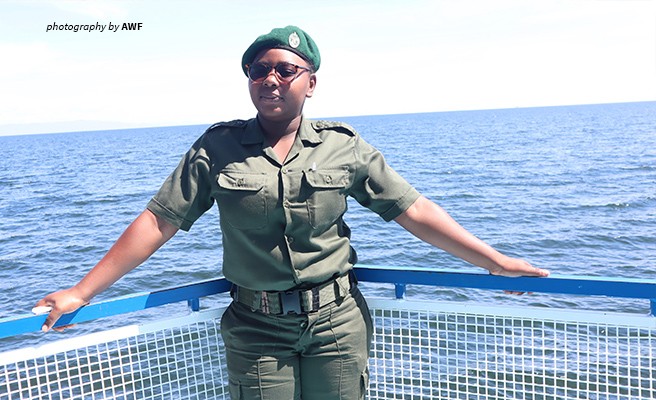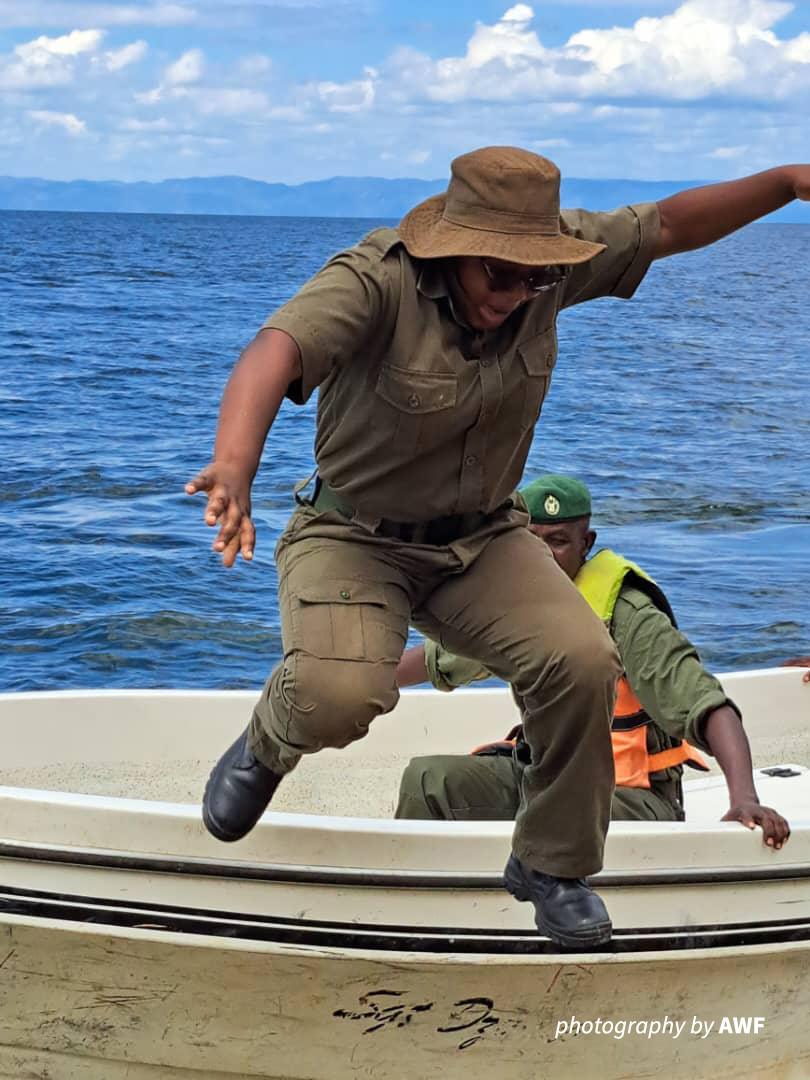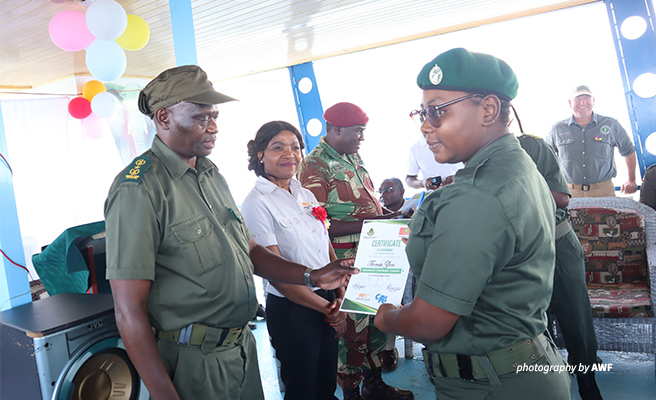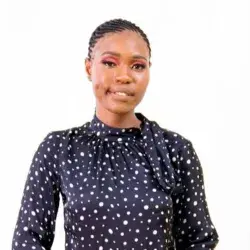World Ranger Day: Meet a Zimbabwean Female Ranger Defying Odds to Inspire Generations

Under the parabola of wildlife conservation in the Mid Zambezi Valley landscape, which houses a UNESCO World Heritage Site- Mana Pools National Park, and key iconic species like elephants, leopards, cheetahs and lions, an exceptional story of sacrifice stands out. As we celebrate the 2023 World Ranger Day, we take time to delve into the story of Brenda Tafadzwa Muchichwa, a Zimbabwe Parks and Wildlife Management Authority (Zimparks) ranger who conducted a rigorous coxswain training course while carrying a life representing the future generation in her womb and an advanced coxswain training when her baby was only 7 months old.
To become one of the young women protecting Zimbabwe’s megafauna and flora, 25-year-old Brenda Muchichwa, has been driven by the passion to preserve nature’s resources and she never thought that one day her passion for wildlife conservation would coincide with her anticipation for motherhood and parenting.
In 2021, she was super excited to be one of the rangers selected to undergo a ranger coxswain training course supported by the African Wildlife Foundation (AWF), Zimparks, and Zimbabwe National Army (ZNA) Boat Squadron Regiment through funding from the CITES MIKE. Longing to make a difference by mastering the skills of protecting wildlife in water-based environments, Muchichwa started the ranger coxswain training together with 17 other trainees- unaware of her developing pregnancy.

As days passed turning into weeks, Brenda and her fellow trainees underwent rigorous training exercises which included theory, challenging wildlife officer personal safety training, and practical exercises which put her knowledge and skills to the test. To put it in perspective, the training is not for the faint-hearted as it requires dedication, a high level of consistency in the aptitude tests, and sharp mental preparedness. Despite these odds, Muchichwa was determined to complete the course.
As the training continued, the first-trimester pregnancy symptoms started to weigh her down, yet Muchichwa was in the dark about what was happening to her. Triggered by the long swim she had participated in as part of the training, her loss of appetite, running stomach, and feeling dizzy prompted her to seek medical advice. To her surprise, she was informed that she was 2 and half months pregnant. Her excitement to be a new mum was however clouded by the looming concern about how she would complete the training.
She attests that the constant support and jeers from fellow coxswain trainees alongside envisioning the new responsibility to her unborn child, fueled her momentum even further.
She foresees a future where her ‘defying all odds’ story could inspire her child and other women in wildlife conservation, a field that she hopes many women will hold as dear as she does in the near future. Brenda was not myopic; she knew that her unborn child would eventually benefit from the natural resources and wildlife that she now protects.
Muchichwa emphasizes that she channeled what drove her to become a ranger; the sheer desire to overcome the challenges of being a woman in a male-dominated working environment.
It is this resolve that compelled her to develop coping mechanisms that propelled her to complete the rigorous coxswain training. She worked with her instructors to restructure some of the physical exercises like the boat driving lessons that she would undertake in the morning to beat extreme tiredness that was usually triggered by the scorching heat and temperature rise as the day progressed. Her mastery in this was evident and a successful graduation was imminent.
On 16 December 2021, Muchichwa was among the 18 launch master coxswain trainees who graduated after undergoing a seven-week course, which included theory and other classroom-based learning, human rights training, and practical exercises and other technical aspects critical for anti-poaching work within water-based environments.
Undoubtedly, Muchichwa stands as a source of inspiration for many. Her courage and tenacity continued even after she safely delivered a baby girl six months after the training. She went on to participate in the second training – ‘Advanced Ranger Coxswain training’ which commenced on 24 March 2023.

With hard work and astounding resilience, Muchichwa made it yet again as one of the 15 advanced coxswains for anti-poaching patrols who graduated in April 2023. This entailed an intense 3-week course that equipped the trainees with critical knowledge and skills on wildlife conservation with a particular focus on anti-poaching and law enforcement activities within water-based environments.
She is cognizant of the fact that the era of gender discrimination has passed as ladies are now taking up challenging roles in various institutions and applauds programs and occupations that are champions for gender equity. She envisions herself improving her skills and being influential in Zimbabwe’s wildlife conservation circles.
“My advice is that every woman who has a passion for wildlife should come and join the industry because they will have an opportunity to conserve wildlife for the current and future generation; they should not be afraid because in this field, women are also capable of doing what men can do.”
She is currently operating from the Marongora Field Station in the Mid Zambezi Valley (MZV), one of AWF’s priority landscapes housing protected areas including the UNESCO World Heritage site, Mana Pools National Park, Sapi Safari Area, and Chewore Safari Area as she raises her young family in the wildlife-rich landscape. We at AWF celebrate her efforts and remain awe-spired by her incredible story of resilience and dedication to conserve Africa’s natural resources for the current and future generations (including her baby girl.)
